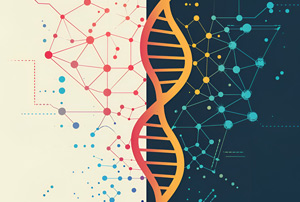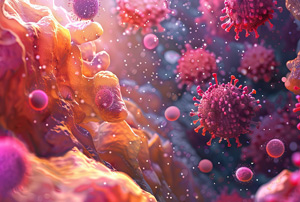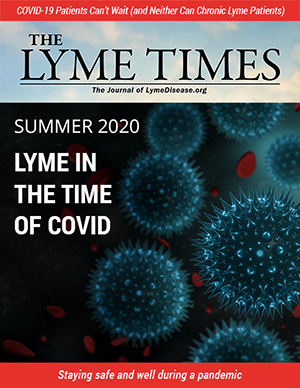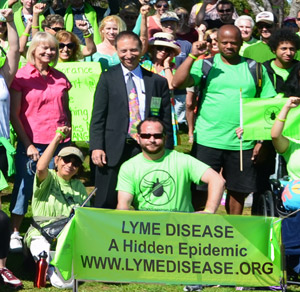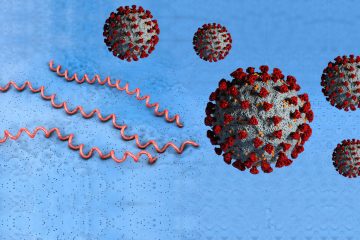Nine Treatments for Mast Cell Activation Syndrome Managing MCAS requires a trial-and-error approach; experimenting with these suggestions to see what works best for you
W hile there is no cure for MCAS, that certainly doesn’t mean you’re simply at the mercy of your misbehaving mast cells. There are a number of tools you can put into place that can work in conjunction to minimize or even eradicate symptoms and help restore balance to your immune system.
Because each person grappling with MCAS is unique, there is no one-size-fits-all treatment strategy. Rather, managing MCAS requires a trial-and-error approach – experimenting with different treatments and lifestyle tweaks to see what works best for you.
Eat a Low-Histamine Diet
 Histamine is one of the primary pro-inflammatory mediators released when mast cells degranulate. So, getting your histamine levels under control is a top priority. One way to do this is by following a “low-histamine diet” – an elimination diet that aims to minimize the amount of histamine you ingest from foods and beverages.
Histamine is one of the primary pro-inflammatory mediators released when mast cells degranulate. So, getting your histamine levels under control is a top priority. One way to do this is by following a “low-histamine diet” – an elimination diet that aims to minimize the amount of histamine you ingest from foods and beverages.
While reducing high-histamine foods can be helpful, the best way to truly identify and track which foods may be a trigger, is to keep a daily log of what you’re eating and drinking and the severity of your symptoms. This will help you identify any patterns and more easily recognize foods that may be contributing to your symptoms. As someone who’s had to work through my own personal food sensitivities, I promise taking the time to get to the bottom of this is worth it.
Use a DAO Enzyme Supplement
Diamine oxidase (DAO) is the main enzyme responsible for degrading histamine. However, if you’re not producing enough of this crucial enzyme, histamine can begin to accumulate and run amok – triggering many of the symptoms associated with MCAS.
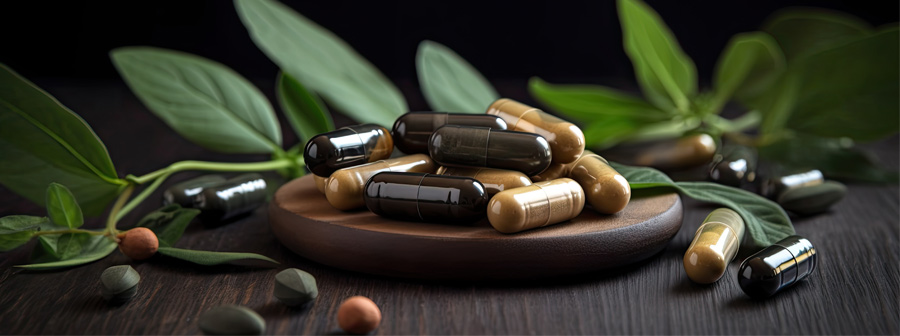
That’s where DAO supplements come in. DAO supplements increase the DAO levels in the digestive tract – reducing the level of histamine entering the bloodstream and floating around in your body which can provide some relief from the symptoms associated with histamine overload.
There are a number of DAO supplements available over the counter, but be careful – ordering from Amazon may be convenient, but it’s also where fake and/or poor quality supplements run galore. (See my website for supplements I approve of.)
Incorporate Antihistamines and Mast Cell Stabilizers
 While DAO supplements are excellent for reducing the amount of histamine absorbed from the food you ingest, these mighty supplements are unable to enter your bloodstream to reduce the amount of histamine produced within your body. This means that excess histamine produced by your own cells needs to be addressed by other methods. Which is where natural antihistamines and mast cell stabilizers can be useful:
While DAO supplements are excellent for reducing the amount of histamine absorbed from the food you ingest, these mighty supplements are unable to enter your bloodstream to reduce the amount of histamine produced within your body. This means that excess histamine produced by your own cells needs to be addressed by other methods. Which is where natural antihistamines and mast cell stabilizers can be useful:
These compounds bind to histamine receptors – essentially blocking histamine from binding to receptors and triggering symptoms. You’ve likely heard of the common over-the-counter antihistamine Benadryl which can be great for immediate relief but can also cause you to build tolerance and require more and more to get the same relief. Some better options to focus on are natural sources of antihistamines like:
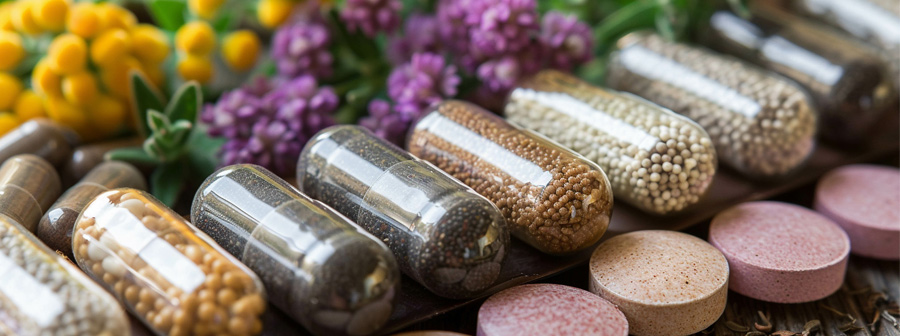
- Vitamin C
- Stinging nettle
- Butterbur
- Bromelain
- Local raw honey
- Probiotics
- Astragalus
These natural antihistamines can help soothe symptoms and naturally reduce histamine levels.
Mast cell stabilizers prevent degranulation and stabilize your mast cells. A few well-known, natural compounds that exhibit mast cell stabilizing activities include:
- Quercetin
- Resveratrol
- Luteolin
- Curcumin
But the truth is, having to take a conglomeration of antihistamines and mast cell stabilizers (on top of potential DAO supplements) can get expensive and overwhelming. To get relief without the expense or headache, I recommend a blend of flavonoids, antioxidants, enzymes, and botanicals that can help block histamine and stabilize your mast cells – providing you with comprehensive support for relief from MCAS symptoms.
Identify Sources of Toxins
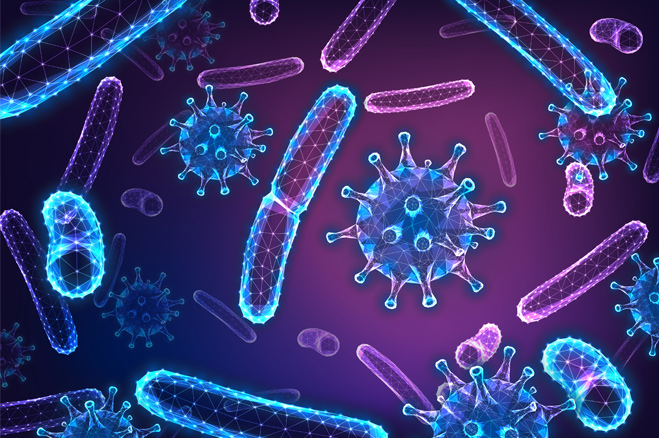 There is no single factor that has been shown as the definitive cause of MCAS. However, various microbes can disrupt the immune system and cause mast cells to go haywire. Two major environmental triggers of MCAS include mold and an elevated overall toxic burden.
There is no single factor that has been shown as the definitive cause of MCAS. However, various microbes can disrupt the immune system and cause mast cells to go haywire. Two major environmental triggers of MCAS include mold and an elevated overall toxic burden.
If you’re struggling with MCAS, it’s absolutely essential to reduce the body’s microbial and toxic burden. This typically requires a thorough assessment of your environment as well as making some adjustments to your lifestyle to minimize exposure to mold and other environmental toxins.
Increase Exercise & Sweating
Once you minimize the inflow of toxins or triggers, you can take steps to mobilize toxins and enhance toxic outflow. One of the best ways to “distress” the toxins in your body is to get the blood pumping through exercise and sweating.

While it may not remove all pollutants, there are studies that show sweating is an effective and safe method for removal of toxic compounds that can accumulate within your body such as: arsenic, cadmium, lead, mercury, phthalates, and bisphenol A (BPA).
To work up a sweat and boost your detoxification, aim for at least 30 minutes of moderate exercise every day or incorporate regular infrared sauna sessions.
Promote Good Gut Health
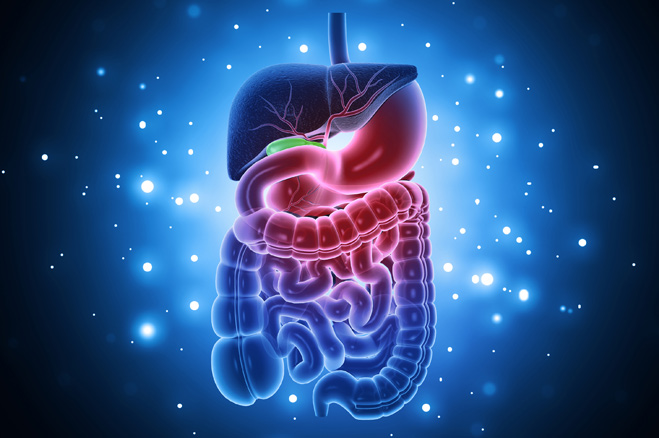 The health of your gut and the composition of your gut microbiome play an intricate role in your immune system thanks to a channel known as the gut-immune axis. This bidirectional communication network allows your gut to directly communicate with and influence your immune system and vice versa. Pair that with the fact that a large percentage of your immune cells are housed within your digestive tract in what’s known as gut-associated lymphoid tissue and it’s easy to see how poor gut health can lead to an off-kilter immune system.
The health of your gut and the composition of your gut microbiome play an intricate role in your immune system thanks to a channel known as the gut-immune axis. This bidirectional communication network allows your gut to directly communicate with and influence your immune system and vice versa. Pair that with the fact that a large percentage of your immune cells are housed within your digestive tract in what’s known as gut-associated lymphoid tissue and it’s easy to see how poor gut health can lead to an off-kilter immune system.
So ensuring your gut is happy, healthy, and balanced is a key piece of the puzzle when it comes to calming hyperactive mast cells. Some ways to support the health of your gut include:
- Reintroduce a variety of beneficial gut microbes to support a diverse and flourishing microbiome with the use of probiotics.
- Give your gut the nutrients it needs to build a strong gut barrier so it can keep pathogens, toxins, and wastes sealed up tight in your intestines where they can be properly excreted.
- Eat a well-rounded, healthy diet full of microbiome-supporting foods. Eating plenty of quality protein and healthy fats paired with slow-digesting carbs will help fuel beneficial bacteria while starving out harmful bacteria. It’s also helpful to opt for organic foods whenever possible to avoid ingesting microbiome-disrupting pesticides and chemicals.
If you’re looking to soothe your mast cells and restore calm to your immune system, you simply can’t afford to ignore your gut health.
Get Enough Sleep
In a world that idolizes intense productivity and doing “all the things,” it’s tempting to sacrifice sleep. But doing so can upset the circadian clock of mast cells. Yes, you read that right, mast cells do indeed have a circadian rhythm – meaning your mast cells are more reactive during certain times of the day and less reactive during others.

This is why many people with allergies report experiencing “morning attacks” or sleep disruptions. Studies have found that serum mast cell histamine levels were lower in the afternoon and highest at night. So, if your circadian rhythm gets thrown off with irregular sleep patterns or poor sleep quality, mast cells can lose their own rhythmicity. This circadian rhythm disruption can cause mediator release to become uniform throughout the day and contribute to your mast cells’ overzealous response.
Thus, cultivating a good, regular sleep schedule and sticking to it can help keep your mast cells in check.
Reduce Stress
 Chronic stress can kick your immune system into overdrive and allow troublemaking microbes to flourish. Stress can also contribute to mast cell degranulation, which causes them to release mediators like histamine. It only makes sense, then, for patients with MCAS to minimize stress as much as possible.
Chronic stress can kick your immune system into overdrive and allow troublemaking microbes to flourish. Stress can also contribute to mast cell degranulation, which causes them to release mediators like histamine. It only makes sense, then, for patients with MCAS to minimize stress as much as possible.
Because triggers for MCAS can be wide-ranging and unique to each individual, it can be helpful to keep a daily journal of any emotions, events, or activities that trigger your symptoms. And remember, the devil is in the details – if you suspect that you are suffering from MCAS, it’s crucial that you create a detailed list of triggers and symptoms to create an effective strategy to minimize your symptoms.
Low-Dose Naltrexone – The Surprising Newcomer
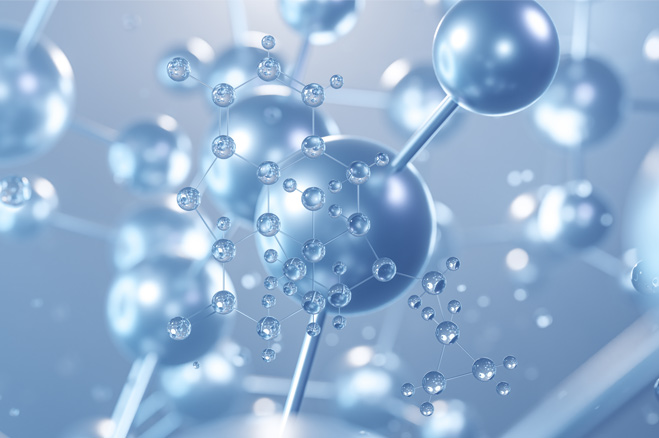 Even with all the treatment methods outlined above, some people may continue to struggle with MCAS symptoms. Recent research shows that a novel use of a medication known as low-dose naltrexone (LDN) may be able to help. At first glance, LDN may seem like a strange drug of choice for the treatment of MCAS – especially considering naltrexone is a drug that was approved to help prevent narcotics and alcoholics from relapsing.
Even with all the treatment methods outlined above, some people may continue to struggle with MCAS symptoms. Recent research shows that a novel use of a medication known as low-dose naltrexone (LDN) may be able to help. At first glance, LDN may seem like a strange drug of choice for the treatment of MCAS – especially considering naltrexone is a drug that was approved to help prevent narcotics and alcoholics from relapsing.
As an opiate antagonist, naltrexone competes with opioid drugs for real estate on opiate and endorphin receptors. This helps patients feel less “high” from opioids or alcohol and reduces cravings. So how on earth does blocking opiate/endorphin receptors help MCAS patients?
You see, low doses of naltrexone essentially trick your body into producing more endorphins – the “feel good” chemical that is released during exercise. The influx of these natural endorphins stimulates your immune system by binding to regulatory T cells, which promotes an increase in T-lymphocytes. This upregulation of T-lymphocytes reduces cytokine and antibody production, restoring a more normal balance while pumping the brakes on overall inflammation.
So, Can Low-Dose Naltrexone Treat Mast Cell Activation Syndrome?
Is low-dose naltrexone the inexpensive, safe, and effective therapy for MCAS we’ve been looking for all along? Of course, we’ll need more evidence, but based on the evidence so far, it appears that LDN has the potential to treat a wide variety of conditions – MCAS included.
 If you’ve been diagnosed with MCAS or are concerned you may be experiencing symptoms associated with hypersensitive mast cells, I cannot overemphasize the importance of working with an experienced integrative and functional medicine practitioner. They can help you pinpoint the root of your symptoms, identify contributing triggers, and help you come up with a comprehensive plan to not only manage symptoms, but heal any imbalances at the source.
If you’ve been diagnosed with MCAS or are concerned you may be experiencing symptoms associated with hypersensitive mast cells, I cannot overemphasize the importance of working with an experienced integrative and functional medicine practitioner. They can help you pinpoint the root of your symptoms, identify contributing triggers, and help you come up with a comprehensive plan to not only manage symptoms, but heal any imbalances at the source.
Are You Concerned About Mast Cell Activation Syndrome?
Living with a chronic illness like MCAS can feel discouraging, frightening, and isolating. But there are things you can control. With the right strategies and combination of medications, supplements, and lifestyle tweaks, you can absolutely stabilize mast cells and bring balance to your immune system.
If you’re grappling with MCAS or any other complex illness or if you’re searching for answers to the barrage of unexplained symptoms you’re experiencing, the future can seem bleak at times. But please know that you are not alone and there is hope for healing. If you’re in a dark or challenging place right now, I’ve been there too – and I want to help you find your way back to health, happiness, and hope.
Editor’s note: Any medical information included is based on a personal experience. For questions or concerns regarding health, please consult a doctor or medical professional.






